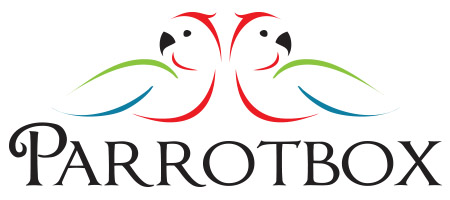With the arrival of summer comes several dangers to our pet birds. Here are a few tips to help keep your pet bird safe this summer:
Beat the heat
Birds can handle the heat better than our furry friends can. This is due to the fact their body temperature ranges from 40 to 41 degrees celcius. Any increase above their normal body temperature can cause heat exhaustion (overheating) in your pet bird.
Birds have no sweat glands. They cool themselves by rapid breathing with their mouths open and by holding their wings out slightly from their bodies. Other signs of heat exhaustion in birds include rapid vibrations of the muscles and bones under the throat, anxiety and agitation and appearing lethargic. If a bird is displaying signs of heat exhaustion it needs to be immediately cooled down with a gentle spray of water or damping with a cool sponge under their wings, feet and beak. Once you have cooled your bird down, take them to an avian veterinarian for attention.
Keep your caged birds cool by gently spraying them with a fine mist of cool water. Avoid placing your bird cage in front of a window or in direct sunlight. Aviary birds can be kept cool with a misting system or hosing down the walls and floor of the aviary with cool water. Alternatively, a small sprinkler could be turned on just outside the aviary.
Birds need a good supply of fresh water. Change water a couple of times per day to ensure the water stays clean and cool. To keep the water nice and cold you could pop in a couple of ice cubes.
Air-conditioning, Fans and Bird Safety
Air conditioners are safe to use around birds. Just make sure your air conditioner is not blowing cold air directly upon your bird. Ceiling fans are another great way of cooling down a room but remember to be especially careful when they are in use. Pet birds can be seriously injured and/or killed if they collide with the moving blades of a ceiling fan. Play it safe and keep your bird in his or her cage when the ceiling fan is on. To prevent the risk of injury, ensure the fan is off before letting your bird out of their cage.
Doors and Windows
The summer months tend to be busier for most households. Between coming and going or having people over for a barbecue, doors are more likely to be left open in the summer months. An open door when your bird is out of their cage creates an escape route for your bird. Likewise, ensure open windows are properly screened with no rips or tears.
Snake Sense
With an increase in temperature comes an increase in snake activity.
Snakes are attracted to food and water sources and safe, quiet places to hide. Make your backyard less appealing to snakes by keeping your grass cut low and clearing your property of piles of rubbish and other objects where snakes may be able to hide.
If you house your bird outside, whether permanently in an aviary, or temporarily in a cage for portions of the day, ensure your bird’s aviary or cage is snake proof.
